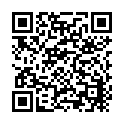It’s the first pandemic of the smartphone era – and that means governments have access to new ways of tracking the spread of Covid-19.
On this week’s Tech Tent, we find out about the apps that are monitoring people with the virus and look at whether they pose a long-term threat to civil liberties.
In South Korea, the authorities have created an app that lets them know whether people who should be in quarantine have broken the rules. In China, the Alipay Health Code app, created by e-commerce giant Alibaba, lets users know if they are allowed to leave home or use public transport. But according to analysis by the New York Times, signing up to the apps can mean handing over data about your location and identity to the police.
Researchers at Australia’s Monash University have been looking at how countries are using tech to manage the virus.
“This is the first pandemic you can access with your smartphone,” Prof Mark Andrejevic tells us. “And also the first one in which smartphones are being used to track people and monitor them and control their movements.”
Of course, what we often fail to realise is that our smartphones and the services on them have been tracking us for years anyway.
If you are signed in to Google Maps, it may well have a complete record of everywhere you have been for years. If you use an iPhone and store your photos in the cloud, Apple will also have a good record of your movements and who you have interacted with.
But in some countries, governments have long wanted to get access to this kind of data – and now they have seized their chance.
In South Korea, they have gone even further than China in acquiring detailed information about people’s movements during this health crisis. Their app tells users about people near them who have been infected, and where they have been.
And that has privacy implications – although the information is anonymised it may not be too difficult for either app users or the police to work out exactly who each flashing dot on the map turns out to be.
Once the system has been put in place, it could continue to be used after this crisis is over. “There’s no reason why you couldn’t use it for the annual flu season, for example,” says Prof Andrejevic
“I do think it’s possible that we might find our concern about the use of information lowered by these moments where because of an exceptional circumstance, all of a sudden this data is being mobilised.”
In the UK, representatives from Google, Facebook, Amazon, Palantir and other tech companies were summoned to Downing Street to be asked what they could contribute to the battle against the virus. The discussions centred around how they could provide data and expertise to help the National Health Service manage what could be a surge in demand.
There is no indication yet that the UK government is considering monitoring infected people via an app. But as the crisis deepens, all countries will face the same dilemma – how much of our privacy are we willing to sacrifice in the battle to keep us healthy?
Original website: https://bbc.in/2QfD7K5




